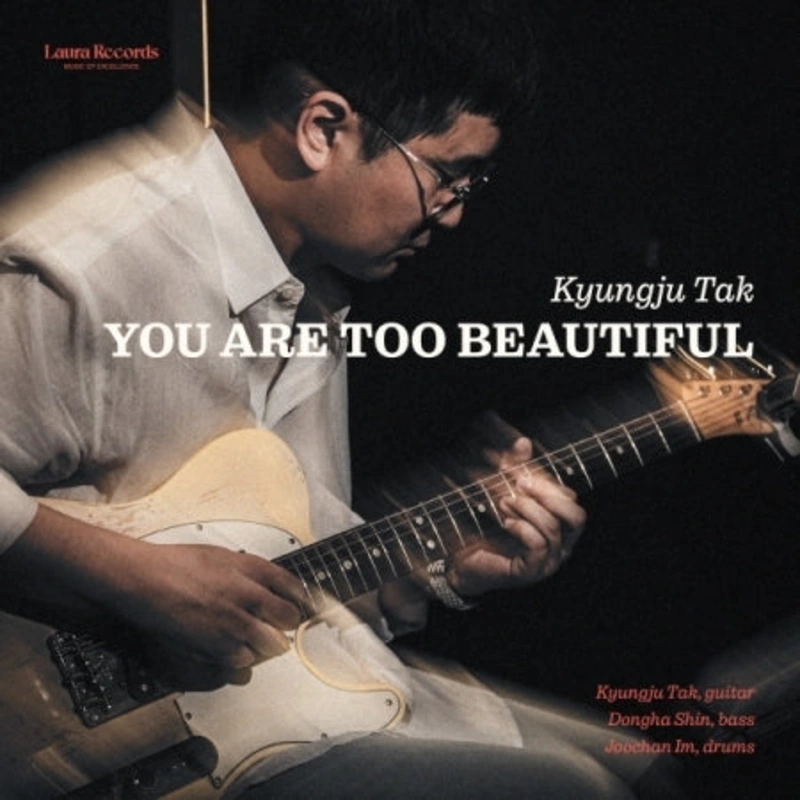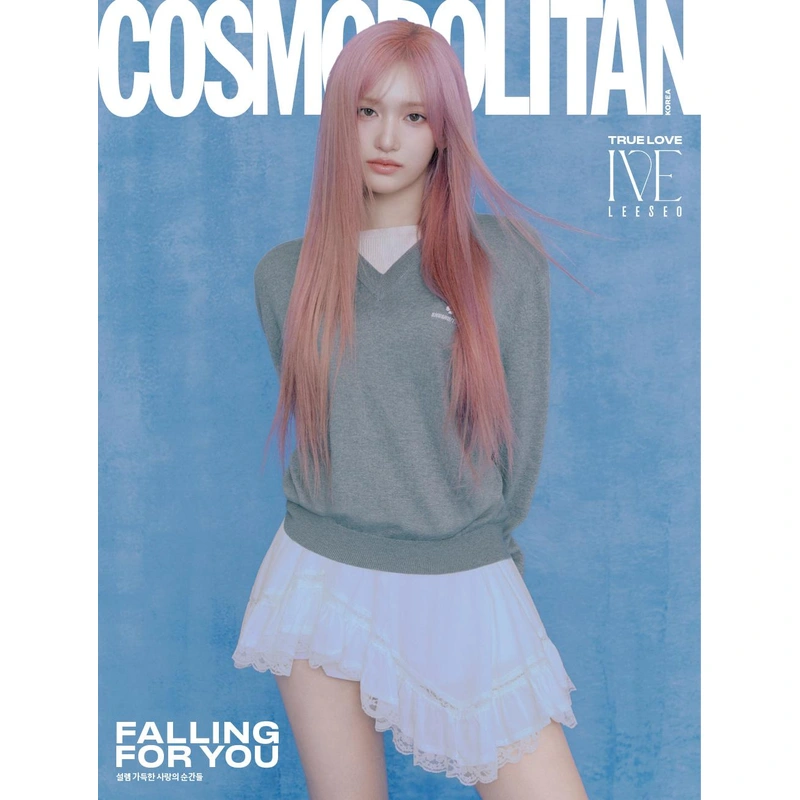(PRE-ORDER) KYUNGJU TAK – [YOU ARE TOO BEAUTIFUL] 5th Album
Original price was: $23.00.$18.40Current price is: $18.40.
Free shipping on orders !
- Satisfaction Guaranteed
- No Hassle Refunds
- Secure Payments
Description
KYUNGJU TAK – [YOU ARE TOO BEAUTIFUL] 5th Album
Release Date: January 7, 2025
*** IF YOU INCLUDE NON-PRE-ORDER ITEMS IN A CART WITH PRE-ORDER ITEMS, NON-PRE-ORDER ITEMS WILL BE SHIPPED ALL TOGETHER ON THE LATEST RELEASE DATE. ***
Pre-order items are scheduled to be officially released in near future. You can place orders for these products in advance before the items and any pre-order benefits run out of stock.
Pre-orders will be fulfilled in the order of receipt as the corresponding item is officially released. You will be notified if the official release schedule changes.
Depending on versions, contents (cover, photo book, mini book, photo cards, posters, etc.) in the official album package may vary.
All products are officially distributed BRAND NEW and FACTORY SEALED packages.
Your purchase quantity will count towards HANTEO, CIRCLE (GAON) and BILLBOARD Charts.
[Track List]
DISK(CD) 1.
01. You Won’t Forget Me (Kermit Goell, Fritz Spielmann)
02. You Are Too Beautiful (Richard Rodgers) TITLE
03. ‘Tis Autumn (Henry Nemo)
04. On a Clear Day (Burton Lane)
05. Tenderly (Walter Gross / Jack Lawrence)
06. Beautiful Love (Victor Young) TITLE
07. If I Should Lose You (Ralph Rainger)
08. Polkadots and Moonbeams (Jimmy Van-Heusen)
Description (Translated):
A vintage swing that has matured over time
The essence of a leisurely jazz ballad
Jazz Guitarist Tak Kyung-joo’s 5th Album
There are many different subgenres in jazz music, which is more than you might think. Among them, swing and bebop, which are called the most traditional jazz areas, are the biggest and most distinct differences that helped jazz establish itself as a new musical art form that emerged in the 20th century, and can be said to be the basics and core that still account for at least 60% of the unique identity of jazz. When you approach this area a little closer and open your understanding, it becomes much easier to accept the genre of jazz, but this is easy to say, but the approach itself is quite different from the pop/pop songs that we have been familiar with for a long time, so it is not easy to accept.
The main rhythm accent differences, the melody progression, and the basis of harmony are more diverse and complex, and the weight of performance is much greater than that of vocals in the jazz genre as a whole, so it is easier to approach if you have some awareness and training for the sounds of various instruments. Oh my! Even just talking about this makes me feel like I am giving the listeners a task…! I am sorry, but even so, if you put in that much effort, you can get a little closer to jazz. However, if you have the interest and passion to get that close, then from then on, you will be able to encounter a completely different level of wonder from when you listened to other genres of music before. I can promise you this.
Well! Then, what is the taste of swing, which can be said to be the most basic rhythm and essence of jazz? What do the bebop melodies and harmonies of jazz that sway within the flow and pulse of swing tell us? At least, I can say that it is a reasonable choice to use guitarist Tak Kyung-joo’s music as an example as a non-awkward answer to this question. It is noticeable that passionate jazz fans with a certain range of perception are saying, “What kind of nonsense is this?” Of course, it is natural to first mention the names of many great legends recorded in the history of jazz, but rather than recommending the young music fans of the current generation to look into the archives of performers who are as old as their grandfathers, or sometimes even older, I am talking about the music of young musicians who are living in the present era and who are right next to us and whose performances can be seen in person if the situation allows. I hope there is no misunderstanding.
Tak Kyung-joo’s guitar very well captures the unique aesthetic of swing and bebop that emerged when jazz began to flourish in earnest in the 1930s and 40s. As I mentioned when I introduced his music in the past, the taste and musicality contained in his guitar playing are directly inherited from early jazz guitar masters such as Tal Parlow, Barney Kessel, and Herb Ellis, and more than anything, he is able to express this taste very skillfully and naturally among domestic players. In particular, in my opinion, the greatest strength and charm of his guitar playing is the excellent sense of rubato/legato that allows him to flexibly weave the melody and harmony of existing songs as if he were speaking himself and actively adjust the breathing and length, and guitarists with this tendency are very rare in Korea. There are many players who play more smoothly and technically splendidly than him, but it is truly rare to find a player who has such a keen sense of timing hidden between notes as Tak Kyung-joo. And when a jazz player can properly digest this, and when an audience can properly hear and feel this, I am sure that they will be able to realize the unique musical charm of jazz, and in this respect, Tak Kyung-joo’s guitar can be a very good reference. In other words, his true strength and talent lie not in flashy speed and nimble technique, but in his flexible and faithful swing and the use of delicious phrases based on this.
He has produced a new album after five years. And it is a trio arrangement. Tak Kyung-joo has produced four regular albums so far, and two of them were trio arrangements. Those two albums were trio, but there was a difference in the instrument arrangement. This album was his second work as a leader. It was performed with a typical guitar trio arrangement of guitar-bass-drums. The previous work The most obvious core of this new work is that he, who had attempted some musical changes in , has returned to the realm of traditional swing and bebop, which are his strengths and musical foundations. I personally was very happy about that. As in his previous work, trying new changes is a necessary process for any musician, but returning to his original realm, which is the most suitable for him and which gives him great inner inspiration, cannot help but convey a sense of comfort and joy, like returning home. The fact that he intended to properly implement the taste of swing, which I mentioned at the beginning of the article as the greatest strength he acquired from guitarist Tak Kyung-joo, is the most optimal attempt to include in this new work, and I think it is a choice that gives a certain level of prior trust in musical fidelity, as he intends to properly show his strengths. Then, the key is one thing! How much inner strength and depth have his performance and music accumulated over the past years?
Introducing the included songs
The moment I heard a verse of the first song, You Won’t Forget Me, or to be exact, a few bars of the solo part, I immediately felt it. He had been constantly refining and contemplating his guitar for the past five years! Just from the sound of Tak Kyung-joo’s guitar flowing from the intro, you can feel a clear difference from his previous performance. His guitar tone itself is rounder, warmer, and wider. Whether he plays with single notes or chords, his guitar sounds richer, and this is even more evident when compared to his previous works. If you listen to Beautiful Love, which was recorded with only a guitar and bass duo, you can see that the sense of space is much larger and the sound has a three-dimensional feel compared to his younger guitar, which was brighter and clearer, confirming that he is not stuck in the past. (This cannot be seen as a difference in acoustic environment including the studio, because the studio space was better in the previous album or at least comparable, and it originated from the part about how the performer himself implements the tone, and it is a point unrelated to the changes caused by the recording space’s own resonance and mixdown.) Just the fact that he can continuously weave organic and rich solo lines and comping to match the guitar tone that has been upgraded by at least two steps shows how much effort Tak Kyung-joo himself has put in. On top of that, with his unique hand feel and flexible legato/rubato phrases, he adds a flavorful rendition of the standard number, so it can’t help but be enjoyable to listen to.
And in this work, Tak Kyung-ju consistently plays all the songs at a medium or slow tempo, and this point can be said to be the biggest feature and unique charm of this album. While playing at a fast tempo is based on a certain level of technical proficiency, it actually reduces the level of distinction between performers, but many performers, both domestic and international, say that it is more difficult than one might think to faithfully perform ballads or relaxed swing at a slow tempo. The key is how much meaningful melody and rhythm can be extracted from it, and Tak Kyung-ju has had an understanding of this aspect since long ago. (When he first came to Korea, he released his first album If you listen to it, you will know what I mean.) From that perspective, this work has a stronger connection to the first album musically, but the playing skill and feel are deeper than then, and there is not much waste of notes, so it is bound to be more favorable!
What about the sound and melody of the introduction solo of the album title song, You Are Too Beautiful, or the only guitar solo song, Polkadots & Moonbeams, included at the end of the album? His interpretation based on the beautiful melody of the original song at a leisurely tempo warms the heart, and along with You Won’t Forget Me, the album’s mid-tempo swing number, On a Clear Day, has organic solos and comping where no mechanical scale play can be found at all, breathing new life into old standard numbers. Why is the maturity of the sound and the density of the performance so high compared to the past? When I asked the player himself, he said that he was constantly inspired by the playing of great senior players such as Ed Bickert, Grant Green, Vic Juris, and Jimmy Raney, whom he had admired and listened to consistently, and that he thought that the peak of their music was their leisurely swing at medium and slow tempo more than anything else. In the end, this album contains the result of his constant honing and searching for direction in order to express this leisurely swing well! In addition, the support of drummer Lim Ju-chan and bassist Shin Dong-ha, who worked well as a team, is also adequate, neither too much nor too little, and it feels unique that the two of them, who are usually known as excellent technicians among domestic players, produce restrained swings according to Tak Kyung-joo’s intentions and direction.
And lastly, the fact that two vocalists, Kim Joo-hwan and Im Chae-hee, were invited to sing together is also one of the attractive points of this work. Kim Joo-hwan, who has solid skills and stable vocal skills, is the leader of his recent work, In the song, he continues the conversation with Tak Kyung-joo’s guitar, continuing the restrained vocalization and the way he sings by gathering emotions inside, and the way he develops the notes with only a guitar and vocal duo is impressive. Lim Chae-hee, who sang Tis Autumn, is one of the female vocalists who has recently been active in the domestic jazz scene, and her voice itself has a simple yet unadorned charm. In this song, she sings while highlighting that point well, and with a slightly laid-back tone, she highlights the beauty of the original song with her emotional expression.
Epilogue
From the beginning, his performances did not have a strong sense of self-consciousness to show something new. Instead, he always had a desire to present improvisations filled with good melodies, and his intention to convey sounds and inspire the listener as if telling a story was the top priority, so I personally felt happy every time I listened to him. In this regard, in the contemporary jazz scene where newness and modernity are sometimes perceived as the most important virtues, Tak Kyung-joo is definitely a rare musician who reawakens the authentic flavor of the classics, and I think he is even more valuable in the domestic jazz scene where musicians with this tendency are very rare. A guitarist who understands and knows how to faithfully tell a story in swing and bebop, and even in a relaxed and leisurely mid-tempo! I would like to recommend this album full of charm and elegance to jazz fans who know how to truly feel the beauty of his performance.
Written by/MMJAZZ Editor-in-Chief Kim Hee-jun
Description (Original):
5th Album
. 20 , 6 . / .
, . ! …! . . .
! ? , (Pulse) ? . ‘ ‘ . , .
1930~40 . , . / , . . , . .
5 . . 4 . 2 — . . . , . , . ! .
You Won’t Forget Me , . 5 ! . , . Beautiful Love , . ( ) . / .
, . , . . ( 1 ) 1 !
You Are too Beautiful Polkadots & Moonbeams ? , You Won’t Forget Me On a Clear Day . ? (Ed Bickert), (Grant Green), (Vic Juris), (Jimmy Raney) , . ! , .
. , . Tis Autumn . .
Epilogue
. , . , , . , , ! .
/MMJAZZ






 (PRE-ORDER) PLAVE - [CALIGO PT.1] 3rd Mini Album VANGUARD EUNHO Version
(PRE-ORDER) PLAVE - [CALIGO PT.1] 3rd Mini Album VANGUARD EUNHO Version  (PRE-ORDER) PLAVE - [CALIGO PT.1] 3rd Mini Album VANGUARD HAMIN Version
(PRE-ORDER) PLAVE - [CALIGO PT.1] 3rd Mini Album VANGUARD HAMIN Version  (PRE-ORDER) PLAVE - [CALIGO PT.1] 3rd Mini Album FUGITIVE Version
(PRE-ORDER) PLAVE - [CALIGO PT.1] 3rd Mini Album FUGITIVE Version  (PRE-ORDER) ROS - [ROSIE] OFFICIAL MD NUMBER ONE GIRL WHITE T-SHIRT
(PRE-ORDER) ROS - [ROSIE] OFFICIAL MD NUMBER ONE GIRL WHITE T-SHIRT  (PRE-ORDER) ROS - [ROSIE] OFFICIAL MD RED ROSIE COLOR CASE
(PRE-ORDER) ROS - [ROSIE] OFFICIAL MD RED ROSIE COLOR CASE  (PRE-ORDER) EVNNE - [HOT MESS] 4th Mini Album DIGIPACK JI YUNSEO Version
(PRE-ORDER) EVNNE - [HOT MESS] 4th Mini Album DIGIPACK JI YUNSEO Version  (PRE-ORDER) EVNNE - [HOT MESS] 4th Mini Album DIGIPACK MUN JUNGHYUN Version
(PRE-ORDER) EVNNE - [HOT MESS] 4th Mini Album DIGIPACK MUN JUNGHYUN Version  (PRE-ORDER) GQ KOREA - 2025.02 ROS D Type
(PRE-ORDER) GQ KOREA - 2025.02 ROS D Type  (PRE-ORDER) COSMOPOLITAN - 2025.02 IVE LEESEO F Type
(PRE-ORDER) COSMOPOLITAN - 2025.02 IVE LEESEO F Type  (PRE-ORDER) SUPERELLE () - 2025.01 ZHANGHAO A Type
(PRE-ORDER) SUPERELLE () - 2025.01 ZHANGHAO A Type  (PRE-ORDER) EVNNE - [HOT MESS] 4th Mini Album DIGIPACK YOO SEUNGEON Version
(PRE-ORDER) EVNNE - [HOT MESS] 4th Mini Album DIGIPACK YOO SEUNGEON Version
Reviews
There are no reviews yet.